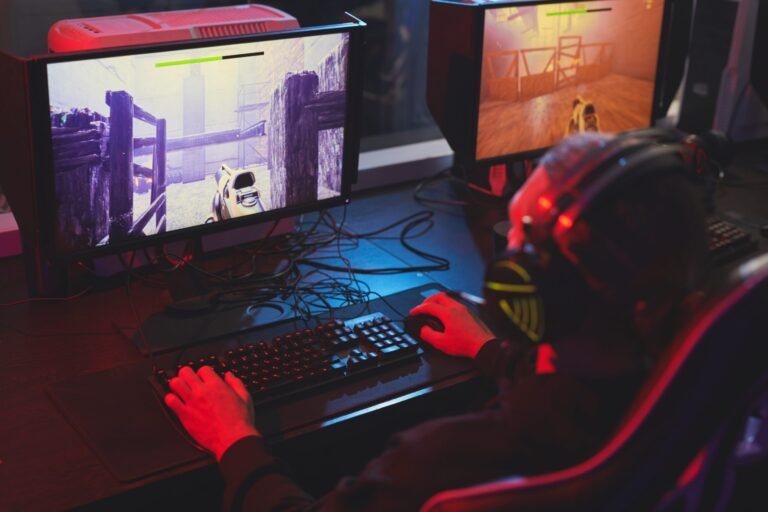Online gaming has become an increasingly popular form of entertainment, captivating millions of players around the world. While gaming offers numerous benefits and enjoyable experiences, it is important to explore the impact it has on mental health and well-being. The betso888 state-of-the-art technology ensures a seamless and fair gaming experience for all players. This article delves into the topic, examining the potential positive and negative effects of online gaming on mental health, and highlighting strategies for maintaining a healthy gaming experience.
The Benefits of Online Gaming
Online gaming can have positive effects on mental health and well-being. It provides an outlet for stress relief, relaxation, and escapism. Engaging in gameplay can serve as a form of self-expression, creativity, and social interaction. Additionally, multiplayer gaming allows for the formation of connections, fostering a sense of belonging and social support. These benefits can contribute to improved mood, reduced feelings of loneliness, and increased overall well-being.
Enhancing Cognitive Skills
Online gaming has been associated with the development and enhancement of cognitive skills. Certain games require strategic thinking, problem-solving, and quick decision-making, which can improve cognitive abilities such as memory, attention, and spatial reasoning. Engaging in these cognitive challenges can have positive effects on mental acuity and cognitive function.

Social Interaction and Community
Online gaming provides opportunities for social interaction and community engagement. Multiplayer games enable players to connect with others, form friendships, and collaborate towards common goals. This social aspect of gaming can combat feelings of isolation and loneliness, fostering a sense of belonging and support within virtual communities. Strong social connections have been linked to improved mental health and well-being.
Emotional Regulation and Resilience
Gaming can serve as a platform for emotional regulation and resilience. Immersive gaming experiences can elicit a range of emotions, allowing players to practice emotional control and regulation. Navigating challenging gameplay situations can cultivate resilience, as players learn to persevere, adapt, and overcome obstacles. These skills can transfer to real-life situations, enhancing emotional well-being and resilience in the face of adversity.
Potential Risks and Challenges
While online gaming can have positive effects, it is important to be aware of potential risks and challenges that can impact mental health. Excessive gaming, neglecting other aspects of life, and prioritizing gaming over essential responsibilities can lead to negative consequences. Prolonged periods of sedentary behavior and insufficient physical activity may also pose health risks. Additionally, certain gaming communities may exhibit toxic behaviors, which can contribute to stress, anxiety, and negative emotional experiences.
Striking a Balance
Maintaining a healthy gaming experience involves striking a balance between gaming and other aspects of life. Setting limits on gaming time, prioritizing real-life responsibilities, and engaging in physical activity are important for overall well-being. Taking regular breaks during gaming sessions, practicing mindfulness, and engaging in activities outside of gaming can contribute to a balanced lifestyle.
Creating Supportive Gaming Environments
Fostering supportive gaming environments is crucial for mental health and well-being. Gaming communities and platforms should prioritize inclusivity, respect, and positive communication. Encouraging fair play, discouraging toxic behaviors, and providing resources for mental health support can contribute to a healthier and more positive gaming experience for all players.
Seeking Support When Needed
It is important to seek support when experiencing difficulties related to gaming or mental health. If gaming begins to negatively impact daily life, relationships, or mental well-being, reaching out to trusted friends, family members, or mental health professionals can provide guidance and support. Recognizing the signs of gaming addiction and seeking help from appropriate resources is essential for maintaining mental health and well-being.
Conclusion
Online gaming has a complex relationship with mental health and well-being. While it offers numerous benefits, such as stress relief, social interaction, and cognitive enhancement, it also carries potential risks if not approached with balance and moderation. By being mindful of gaming habits, prioritizing overall well-being, and creating supportive environments, individuals can enjoy the positive aspects of online gaming while maintaining their mental health and overall well-being.
